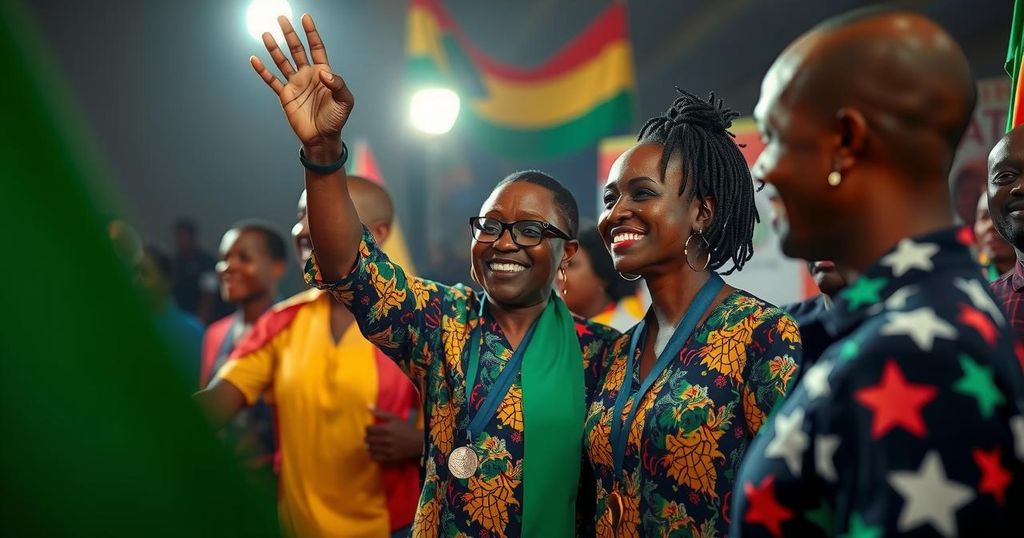Senegal’s Legislative Elections: A Testament to Democratic Resilience

Senegal held a critical snap legislative election on 17 November, resulting in a triumphant affirmation of democratic principles. President Bassirou Diomaye Faye is set to lead after the ruling party’s anticipated majority victory, occurring against a backdrop of protests stemming from previous political turmoil. The high voter turnout of 61.3% demonstrated strong civic engagement, emphasizing the country’s dedication to constitutional governance. However, challenges such as corruption and weak governance remain as potential risks to democratic stability.
Senegal recently held a snap legislative election on 17 November, led by President Bassirou Diomaye Faye, who took office in April after significant political turbulence. The prior president, Macky Sall, had postponed elections and faced mass protests regarding his controversial decision. However, following an electoral transition marked by high voter turnout and peaceful processes, Faye’s election reflects a commitment to democracy. The ruling party, Pastef, is projected to retain a majority in the legislature, and rivals have acknowledged their defeat, signifying a citizen-driven initiative to enhance democratic institutions. The successful transition dispels concerns of instability and underscores the effectiveness of elections as a peaceful means for political transformation. Voter turnout reached 61.3% during the elections, affirming the public’s active engagement in Senegal’s democratic process, especially amid previous unrest linked to the opposition leader Ousmane Sonko and the youth’s grievances against economic struggles. This electoral event stands in contrast to democratic challenges faced by other nations in Africa, highlighting Senegal’s unique resilience and stability. Despite these advancements, Senegal must navigate ongoing threats to its democratic integrity, including issues of corruption, weak governance, and state capture. Although Senegal still performs better than many West African nations regarding corruption, problems such as clientelism and nepotism persist, hindering efficient public service delivery. To bolster its democracy, the government must address these issues by upholding democratic values, fostering inclusive governance, maintaining judicial independence, ensuring electoral accountability, and combating corruption. Senegal can serve as a valuable model for other African countries by demonstrating how democratic processes can effectuate peaceful change. The elections have rekindled hope for solidifying participatory governance, respect for rule of law, and the importance of civic engagement and education in nurturing informed citizenry. The societal consensus and adherence to constitutional principles can not only secure Senegal’s democracy but also enhance its resilience against external and internal threats.
Senegal has experienced a volatile political climate, especially after former President Macky Sall’s controversial handling of the electoral process, which included delaying elections and prompting protests across the nation. The political unrest highlighted the fragility of the country’s democratic institutions, leading to an urgent need for a reaffirmation of democratic principles. The recent elections are crucial for demonstrating Senegal’s commitment to constitutional governance and provide insights into the evolving nature of democracy within the African context, where many nations continue to grapple with different degrees of democratic challenges.
In conclusion, the recent legislative elections in Senegal signify a triumphant moment for democracy, showcasing the public’s engagement and desire for change through peaceful means. The successful electoral process underpins the importance of upholding democratic values, addressing corruption, and ensuring inclusive governance. As Senegal navigates potential threats to its democratic framework, the lessons learned from this transition provide a hopeful outlook for strengthening democratic resilience in the country and serving as a model for others. The commitment to fostering an informed citizenry and reinforcing democratic institutions remains imperative for the sustainability of Senegal’s democracy.
Original Source: theconversation.com






